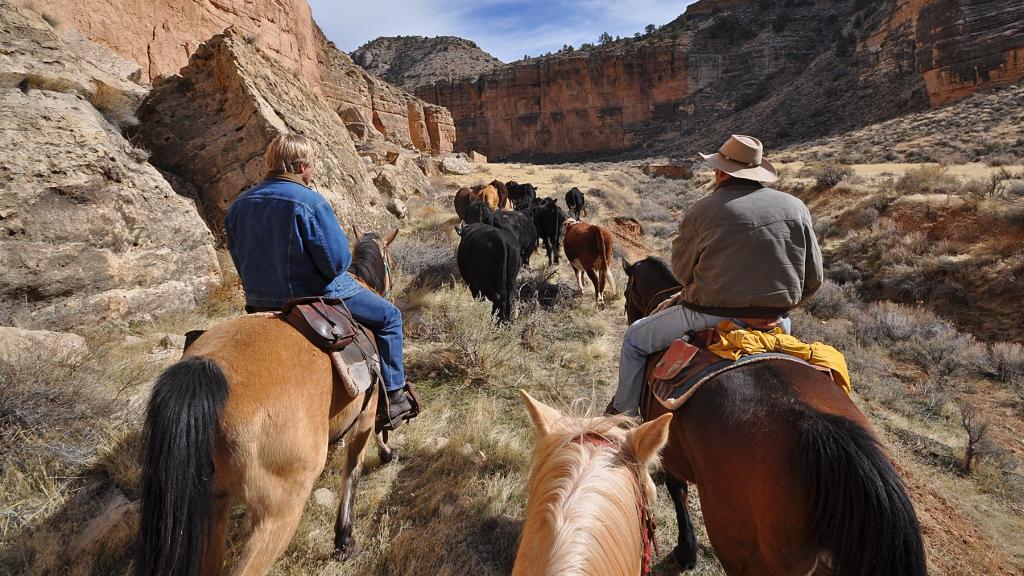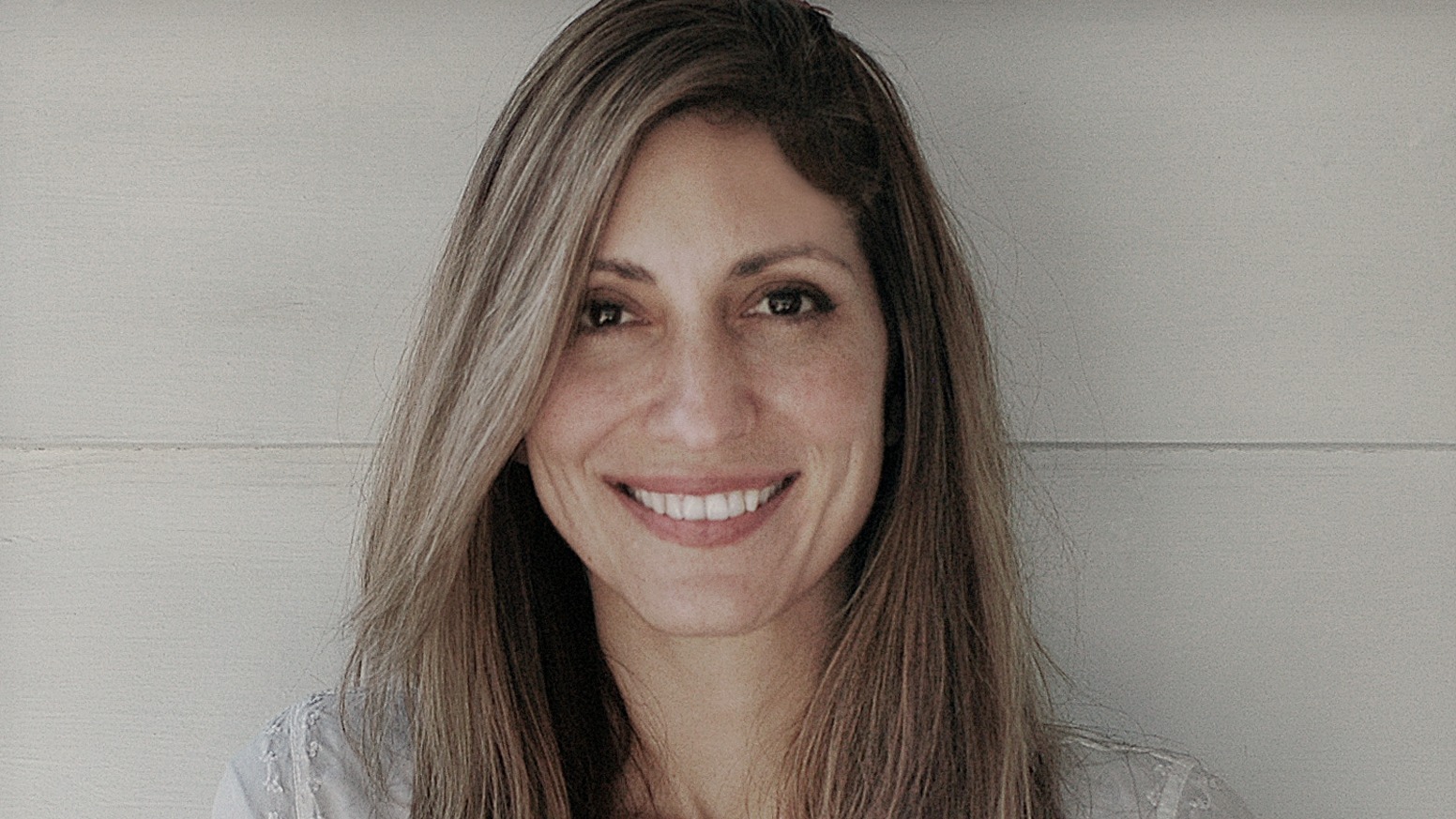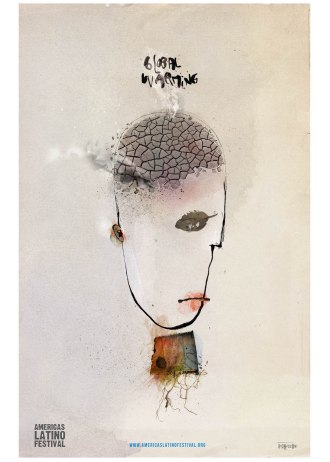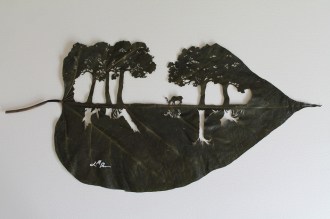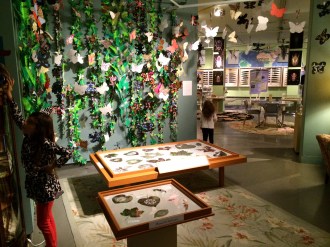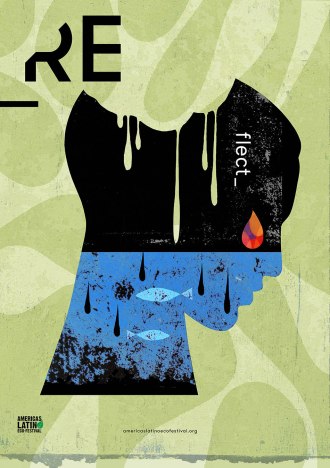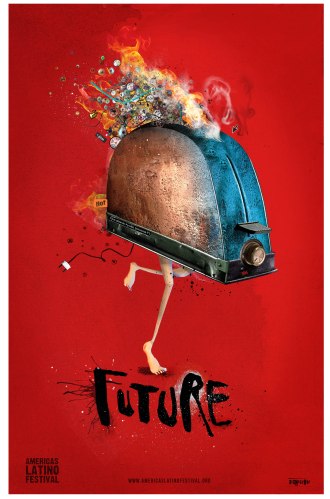Irene Vilar has always felt a strong pull towards social change. In fact, activism is in her blood: In 1954, the book publisher and award-winning author’s grandmother went to jail in the name of Puerto Rican independence. Sixty years later, Vilar wants to tackle the biggest social change campaign on the planet: the one that’s trying to save it.
In 2007, Vilar founded the nonprofit Americas for Conservation + the Arts, a Latin America-focused arts and education network, and last year, she launched Americas Latino Eco Festival, the U.S.’s first-ever Latino-themed enviro fest. The second ALEF kicks off this week, from September 11-16 in Boulder, Colo.
Vilar’s event is nothing if not ambitious. Dubbed a “Latino South by Southwest,” ALEF is “a high-end festival of ideas,” she says, complete with Grammy Award-winning musicians, Broadway actors, documentary filmmakers, Newbery Award-winning illustrators, educators, visual artists, chefs, and activists. But she’s also brought in high-profile environmental leaders of all stripes to talk about everything from fossil fuels to GMOs, environmental justice to water scarcity.
The event’s co-sponsors include the Sierra Club’s Beyond Coal Campaign and Boulder-based The Dairy Center for the Arts. Speakers include Arizona Congressman Raul Grijalva, actors and environmentalists Edward James Olmos and Ed Begley Jr., Mexican-American climate scientist Patricia Romero Lankao (one of the recipients of the 2007 Nobel Peace Prize alongside Al Gore), and environmental justice scholar Dorceta Taylor (whom Grist interviewed a few months back). In addition to all the film screenings and art exhibits and discussion panels, there’s an entire art-and-workshop-filled K-12 education component, too — which could have been, Vilar says, “a whole festival in itself” — focused on how climate change affects bird migration.
Gathering the resources for such a monumental showcase is no simple task (Vilar’s team is still a few thousand in the red from last year’s fest, and as of a few weeks ago, was still looking for the last bit of funding for this one), but that has no bearing on its tenacity — or its success. They’ve raised double what they raised last year and have attracted a slew of green- and Latino-minded sponsors, including Whole Foods, Patagonia, Telemundo, and the Natural Resources Defense Council (NRDC).
For Vilar, money is not what’s at stake: It’s our planet, ourselves, and the importance of actively engaging all communities, particularly communities of color, in the conversation about climate change. “I cannot afford to start small,” she says. “It needs to be fast. Super fast. We’ve got to create a precedent, and then see what happens.”
We caught up with Vilar to talk about how the festival got started, why Latinos in particular are concerned about the environment, how talking about climate change can be an umbrella for talking about social change, and why it’s more crucial than ever to include everyone in these discussions. Here’s an edited and condensed version of what she had to say:
On why book publishing is still important — but not enough:
For the last 20 years, I’ve edited a book series that publishes minority writers of the Americas. We publish literature in translation. Less than 1 percent of people in the United States read literature in translation. [*Editor’s note: That’s tough to quantify, but it’s true that less than 1 percent of all fiction and poetry published in the U.S. is in translation.] As a publisher, you’re impacting culture in a very slow way. A book takes about 10 years to penetrate culture. What needs to be done now is raising awareness through bringing people together, creating noise, and gathering once a year to create a platform and raise our voices.
On diversity in the environmental movement:
Being in Colorado, and being in Boulder, one of the greenest cities in America, I wanted to get involved more with the environmental movement. Everywhere you go there’s an organization or a flier. I would go to meetings and show up sometimes, but I felt really disconnected.
There are these campaigns of misinformation that make people believe they’re not qualified to participate. You have this incredible disproportion between the actual multicultural fabric of the country and all these institutions: higher education, conservation organizations, politics, Hollywood. The country has been brown for a long time, but these institutions do not represent the brown face of the country. When that happens, my children grow up feeling like they do not belong.
We all talk about diversity, but diversity and inclusion are two different things. We have to reach across borders. We have to reconnect with our cultures of origin. Natural resources have no national borders. Our entire future depends on the extent to which we engage communities of color. If we don’t do that, there’s no future.
On Latinos as huge environmentalists:
Over 90 percent of Latinos believe in [human-caused] climate change; that’s compared to about 50 percent of Americans in general.
When I was doing research for the festival, my first impression was to buy the story we are sold — that there is no Latino leader in the environmental movement. What I discovered is that the supply is there. I realized that it’s not about educating our communities, but the white communities! It’s more about educating them and validating us. There are a few issues; one of them is that the environmental movement is looking for PhDs. Our community is underserved. Many of my friends have grandfathers and fathers and mothers that have not even high school degrees, but we’re great conservation leaders.
By 2050, 30 percent of this country will be Hispanic. In Colorado, 52 percent of the high schoolers will be Hispanic. And in the last two years, amazing things have been happening. Things are moving very fast. Green Latinos, NRDC, the League of Conservation Voters (it has wonderful Spanish language outreach), HECHO, the Hispanic Access Foundation, Voces Verdes, Latino Outdoors: We’re bringing them all to the festival.
On why Latinos are huge environmentalists:
Because we are living it in our skin, because we suffer from it. Latin Americans and African Americans are disproportionately affected by pollution, especially clean air. They suffer more than whites from asthma. They live in the most polluted cities. The big bulk of these communities, especially Latin Americans, are working outdoors, in agriculture. They’re exposed to sun, to climate change, to pesticides and chemicals.
And we come from societies that have a huge respect for science. In Latin America, science is huge. We look up to science. We want our children to be scientists.
Latin Americans also come from a very ecological tradition. Indigenous elements survive in our cultures, in our crafts, in our extended families. We have a legacy of recycle, reuse, upcycle because we cannot afford to dispose of anything or anyone.
On social justice and climate change:
Racism, social justice, human rights: climate change is something that unites all these platforms. The reality of climate change made me sensitive to the fact that this gathering has to be framed around the environment. It’s the issue of the moment — and of the future. It’s also a wonderful platform to talk about these other issues.
When we talk about social justice, we need to be framing it in ways that don’t create fear, create walls. We’re all mothers, no matter what. Immigrant or no immigrant, we want our children to breathe good air, eat real food, and have access to clean water. We can talk about social justice, immigration, and all these issues that are very important, but the environmental platform will kind of dilute the defenses.
On the fact that people do care:
Last year was wonderful. We were able to rely on human capital, which proved to me that the product that we were launching — the multicultural Latino eco-festival — was filling a huge void. We saw a lot of excitement from people.
And the most inspiring thing is to really have an experience of what social capital is. The festival happened in its first year and is happening now only because of the power of people, of social capital. You have to stick by that because the element of disbelief can be so big in enterprises of this nature. As a mother of two Latina girls, I ask myself, how is the world going to be for them when they’re my age? Sometimes I feel hopeless. But I’ve discovered that there is hope.
